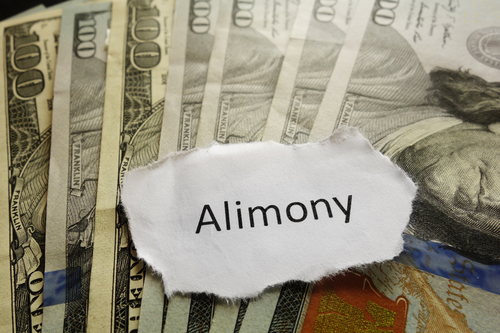 Mediation can be used to help resolve disputes in an array of practice areas, including insurance and Medicare claims.
Mediation can be used to help resolve disputes in an array of practice areas, including insurance and Medicare claims.
About the Process
Mediation is assisted negotiation in which a trained neutral third party assists parties try to resolve their legal dispute. While litigation places parties as adversaries to each other, mediation focuses on the parties working together to solve a mutual problem. The process begins with an introduction of basic rules and then the mediator may break up into private caucuses with each party to better understand the legal issues involved and to move the parties toward an amicable solution.
Benefits of Mediation
Mediators are trained in effective communication and conflict resolution skills. Mediators use these skills to help parties get a broader understanding of their case and the drawbacks of continued litigation. Mediation is a voluntary process. The parties do not have to go through this process unless they agree to do so. Once they are at mediation, they can fully participate in the process. This allows them to have greater control over the possible resolution of their claim. Mediation is typically more affordable than continued litigation and the need to pay ongoing legal fees. What is said in mediation is kept confidential, so the parties can freely communicate without worrying about things they say being repeated at a later point in the process.
When Mediation May Be Effective
Mediation can be effective in a variety of situations. It can be a viable solution if the parties have reached an impasse in communication, when they are interested in maintaining confidentiality, when they do not need to establish precedent for other cases or when only one solution is possible under the circumstances.





 When a hurricane hits, sizable damage can occur. Entire communities can be devastated. Property owners may feel real losses as they try to get their lives back on track. However, insurance companies are often under immense pressure during these times. Emotions may be elevated. Problems can become even more pronounced when hurricane claims are denied. Mediation can help resolve many legal issues related to claims, including:
When a hurricane hits, sizable damage can occur. Entire communities can be devastated. Property owners may feel real losses as they try to get their lives back on track. However, insurance companies are often under immense pressure during these times. Emotions may be elevated. Problems can become even more pronounced when hurricane claims are denied. Mediation can help resolve many legal issues related to claims, including: Fair housing matters may be litigated in courts, or they may proceed through alternative dispute resolution methods, including arbitration and mediation. Some important considerations for fair housing matters include:
Fair housing matters may be litigated in courts, or they may proceed through alternative dispute resolution methods, including arbitration and mediation. Some important considerations for fair housing matters include: Alimony is one of the most contentious aspects of a divorce case with the parties often taking polarizing positions. One spouse may feel that his or her contributions to the marriage are not appreciated and may feel that he or she has a right to alimony. The higher-earning spouse may resent the idea of having to provide financial support to whom he or she is divorced. Mediation can often bridge the gaps between the parties and provides the opportunity for creative solutions.
Alimony is one of the most contentious aspects of a divorce case with the parties often taking polarizing positions. One spouse may feel that his or her contributions to the marriage are not appreciated and may feel that he or she has a right to alimony. The higher-earning spouse may resent the idea of having to provide financial support to whom he or she is divorced. Mediation can often bridge the gaps between the parties and provides the opportunity for creative solutions. Over the last several decades, mediation has been used as an effective tool in diverse causes of action. Mediation has been used to effectively help resolve a variety of cases, including highly publicized food and drug disputes. This strategy may be used in cases involving product liability, shareholder disputes related to the value of stock when safe measures were not used, adverse side effects and other problems plaguing the food or drug process.
Over the last several decades, mediation has been used as an effective tool in diverse causes of action. Mediation has been used to effectively help resolve a variety of cases, including highly publicized food and drug disputes. This strategy may be used in cases involving product liability, shareholder disputes related to the value of stock when safe measures were not used, adverse side effects and other problems plaguing the food or drug process. Consumers often hear about contentious issues involving food or drug products. Items may be recalled or may be alleged to cause harm though the manufacturer refuses to issue a recall. Class action lawsuits may be formed after adverse side effects are realized from the use of certain products. However, these disputes often cause negative ramifications for both parties of the litigation.
Consumers often hear about contentious issues involving food or drug products. Items may be recalled or may be alleged to cause harm though the manufacturer refuses to issue a recall. Class action lawsuits may be formed after adverse side effects are realized from the use of certain products. However, these disputes often cause negative ramifications for both parties of the litigation. Energy disputes can be contentious matters involving a number of parties such as private companies, landowners, customers and regulatory agencies. Alternative dispute resolution is increasingly becoming a preferred method to involve disputes arising in this industry due to the significant advantages that it has over traditional litigation.
Energy disputes can be contentious matters involving a number of parties such as private companies, landowners, customers and regulatory agencies. Alternative dispute resolution is increasingly becoming a preferred method to involve disputes arising in this industry due to the significant advantages that it has over traditional litigation.